With Colorado’s longtime focus on fresh, healthy eating, combined with its entrepreneurial spirit, it’s clear to see why its residents established so many successful food franchises. All these casual chain restaurants share a common theme, and that’s their focus on quality ingredients, affordable prices, and fast service.
This rapid-growing restaurant concept during the past decade is known as “fast casual”. A more upscale approach to eating out, fast casual combines affordability with higher quality ingredients compared to “fast food” (in industry parlance, “quick service” or QSR) restaurants like McDonald’s or KFC.
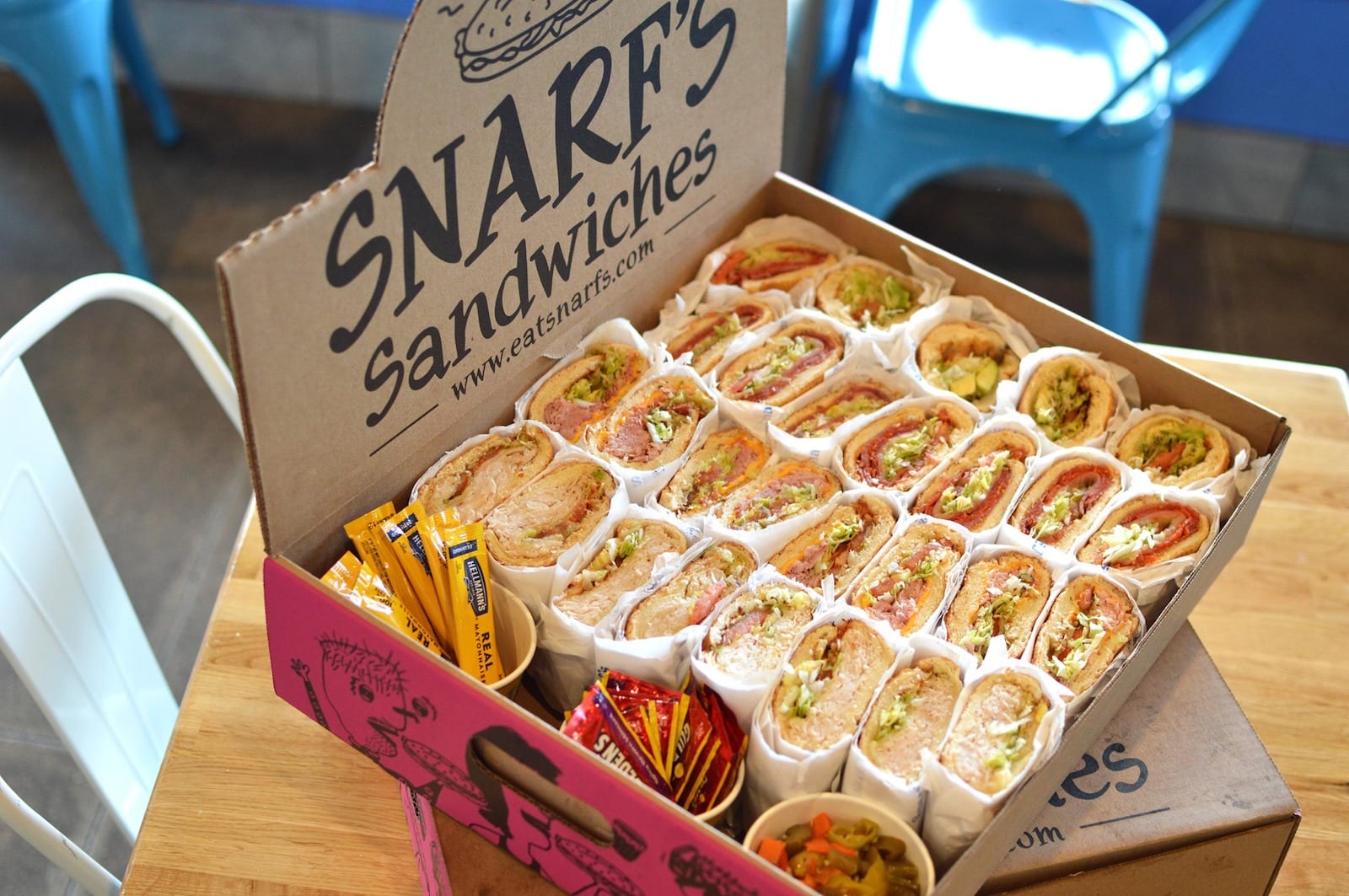
Although patrons order from a menu board, fast-casual establishments provide a more refined ambiance than the typical hash house. After placing their orders, diners sit down to enjoy their repast as much as they would at a “casual” restaurant like a diner. While disposable dishes and plasticware are the norms, fast casual eateries add value by offering premiums such as organic ingredients and perceived “healthier” menu options.
Food industry research firm Technomic sets the following metrics for “fast casual” restaurants:
- Self-service or limited service
- “Made-to-order” menu options with greater flavor variety compared to fast food
- Unique, upscale, and (or) highly refined decor
- Usually does not offer “drive-thru” window service
The 1980s in Colorado saw the onset of what’s now called fast-casual restaurants offering subs, pizza, and burgers. In the 1990s, fast-casual establishments began dishing out burritos, sushi, and pasta. With the new millennium came fast casual breakfast and salad eateries.
Below are fast-casual restaurants with Colorado origins. Some have hundreds—even thousands—of locations nationwide and internationally while the smallest has less than a dozen.
1. Quiznos — 1981 | Denver
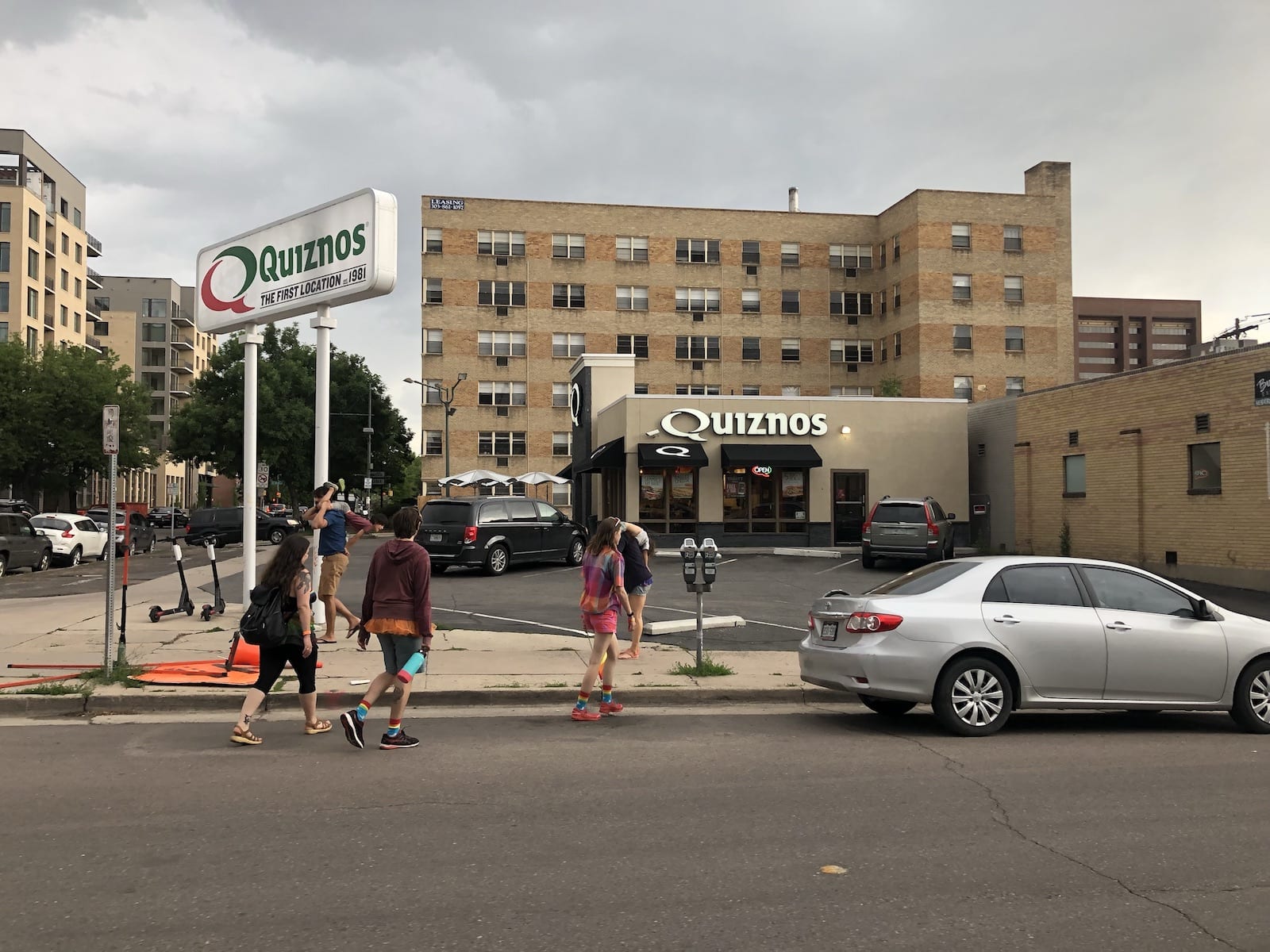
Quiznos first opened in 1981 at 1275 Grant Street in Denver’s Capitol Hill area; the location is still in operation. The sub-chain once boasted 5,000 locations spanning Asia to Europe South America and North America. In its heyday, Quiznos was second only to Subway in North America as a sub-shop chain. In 2016, sales ranked Quiznos as the ninth-largest sub chain and by May 2018 only 1,500 U.S. locations remained.
Quiznos is no longer Colorado-owned. While the company is still headquartered in Denver, San Diego-based High Bluff Capital Partners, a private equity firm, bought Quiznos in June 2018. The company reported a revenue of US $170 million in 2017. Money.com ranked Quiznos in 2018 as the 14th-best fast-casual chain in the U.S.
The shop chain that popularized “Mmmm…Toasty” (and prodded Subway into toasting subs) is no moribund brand.
2. Anthony’s Pizza & Pasta — 1984 | Denver
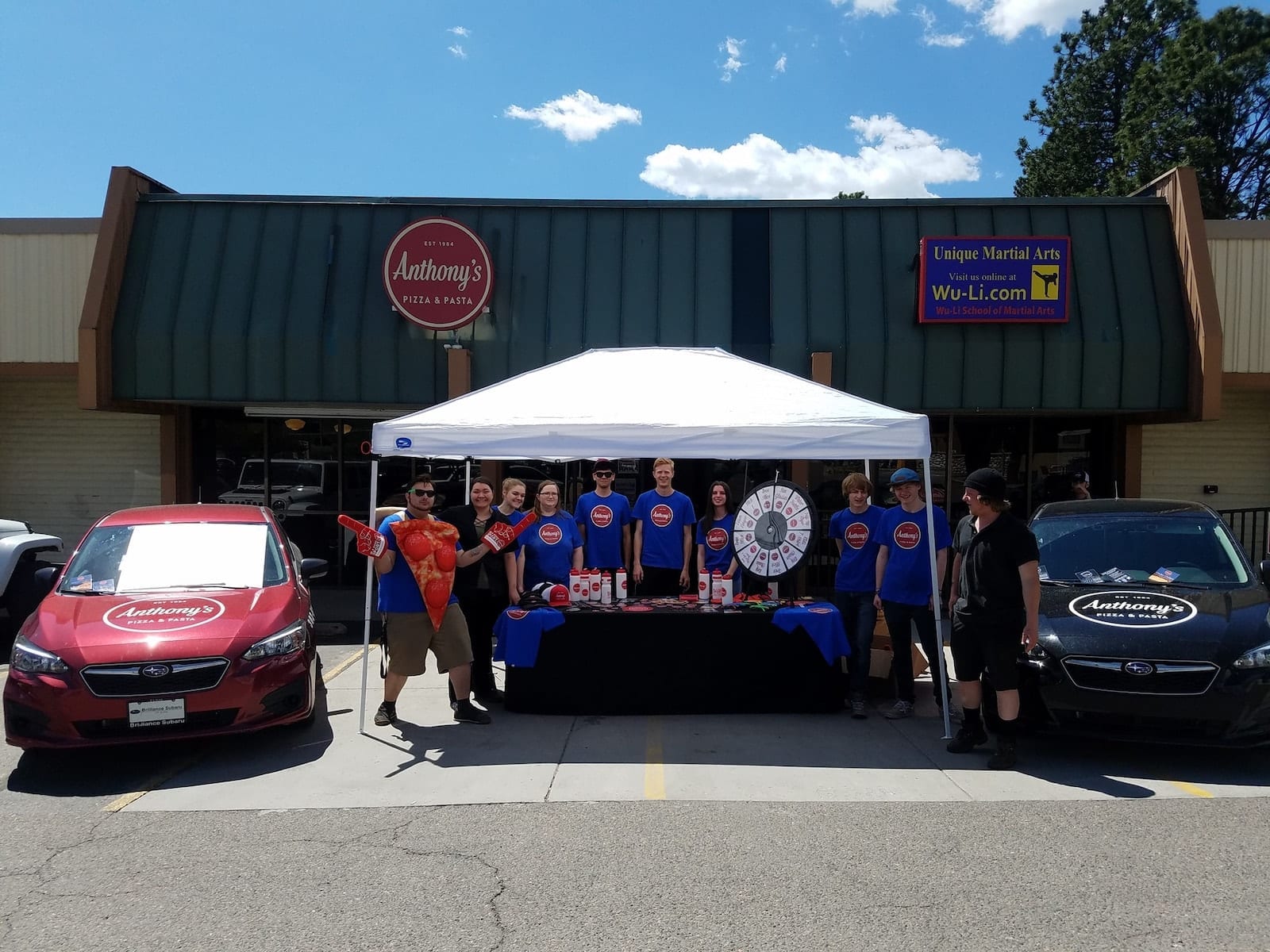
Starting a business in 1984, this chain counts more than a dozen locations along the Front Range from Windsor south to Colorado Springs. Anthony’s uses pure olive oil imported from Italy, pizza dough made daily, and 100% whole milk mozzarella cheese shredded by hand.
Anthony’s makes two kinds of New York-style pizzas: a thin-crust Neapolitan pizza with either white or red sauce and a Sicilian thick-crust pizza with red sauce. Both styles are available by the slice. Gluten-free pies can be had as well.
The chain also offers a variety of salads available with the diner’s protein of choice, premium pasta made with 100% semolina flour, Italian subs, and hoagies—even three styles of chicken wings. Those with a sweet tooth can order New York-style cheesecake, tiramisu, or cannoli for dessert. Note that menus vary by location.
3. Good Times Burgers & Frozen Custards — 1987 | Boulder
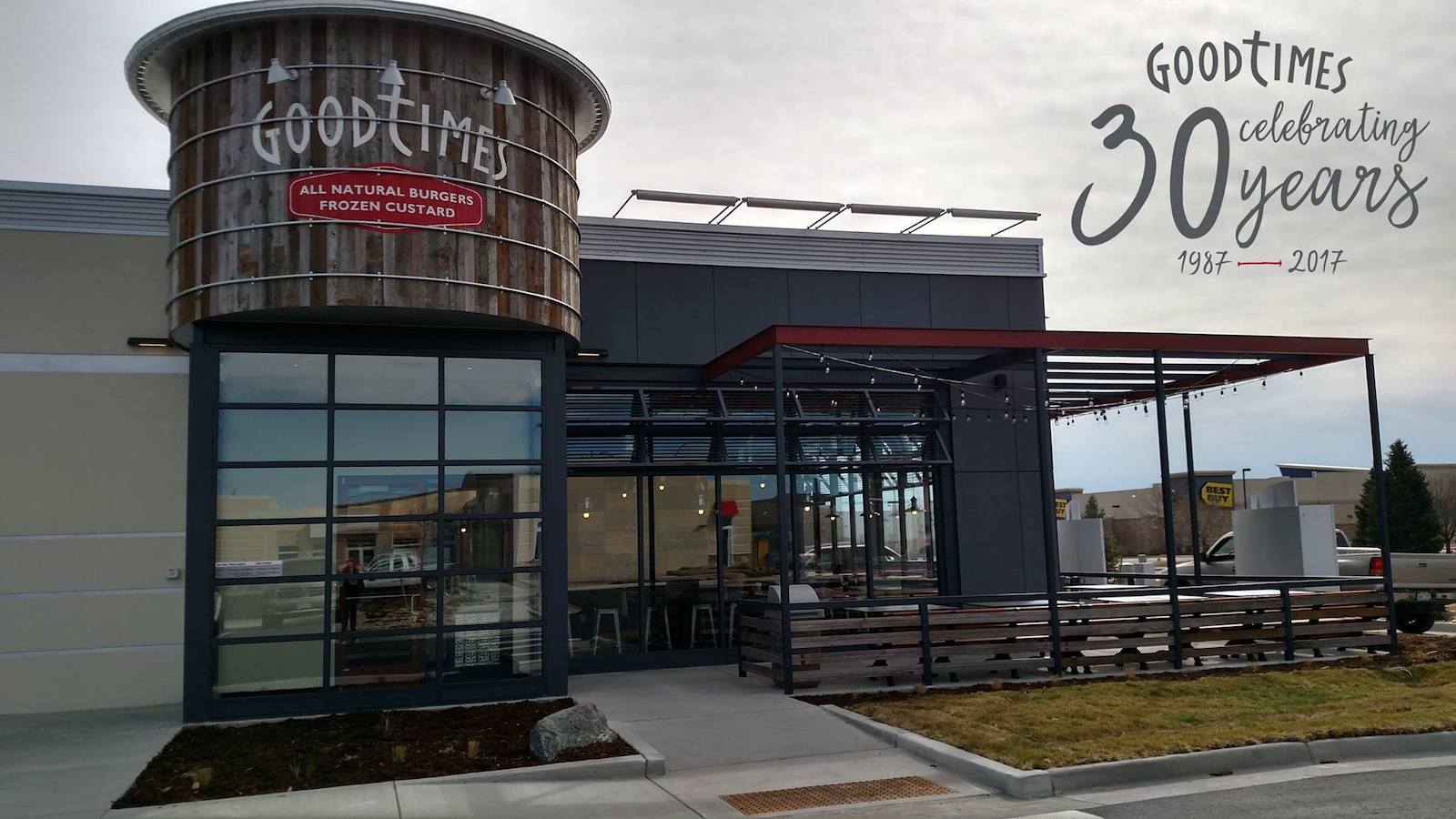
Based in Lakewood, Good Times opened its first location in Boulder in 1987. It started publicly trading on NASDAQ in 1992. Most franchisees are located in Colorado; Wyoming has two. Many (if not all) locations have WiFi available for customers.
Calling itself a “quick service” restaurant, Good Times is a fast food-style restaurant with a drive-thru at all its locations. Good Times serves all-Angus beef, all-natural chicken, breakfast burritos made with Hatch Valley green chile, beer-battered onion rings, and signature “Wild Fries.” Deserts include frozen custard, “hand-spun” shakes, sundaes, and their famous “Spoonbenders.”
For canine “furkids,” Good Times offers the “Pawbender”—vanilla custard served in a “lick-friendly” cup with peanut butter and three doggie biscuits. Just ask, it’s complimentary!
4. Santiago’s Mexican Restaurants — 1991 | Brighton
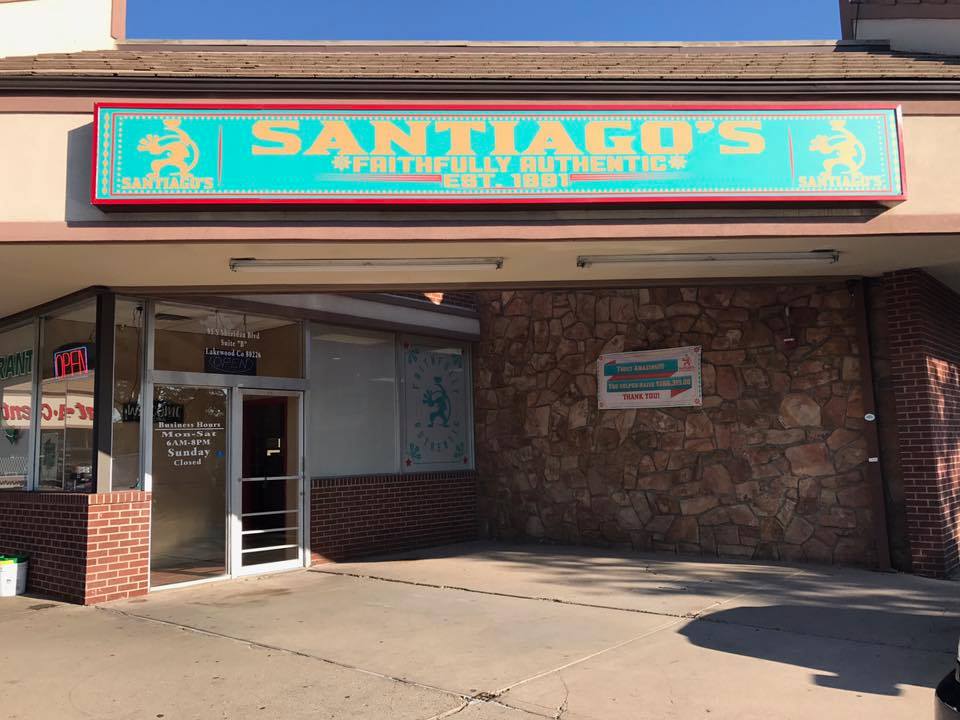
Local Carmen Morales opened the first Santiago’s in her hometown of Brighton in 1991. She’s since grown her empire to include more than two dozen franchised and company-owned restaurants across the Front Range. (The Eastern Plains towns of Fort Morgan and Sterling have locations as well.)
Santiago’s specialty is their famous breakfast burrito made with the family’s secret green chile recipe. Restaurants use locally sourced eggs from Platteville and Hatch green chiles from New Mexico. Most locations serve full lunches and dinners as well as breakfast items. Other menu choices include tamales, chile rellenos, Indian tacos, Mexican hamburgers, fajitas, carne asada and enchiladas.
Santiago’s is a Denver-area favorite; its smothered breakfast burrito and green chile have received numerous awards from local publications. Morales claims their restaurants use almost a half-million gallons of green chile per year. They also serve New Mexico-style red chile.
5. Chipotle Mexican Grill — 1993 | Denver (HQ in Newport Beach, CA)
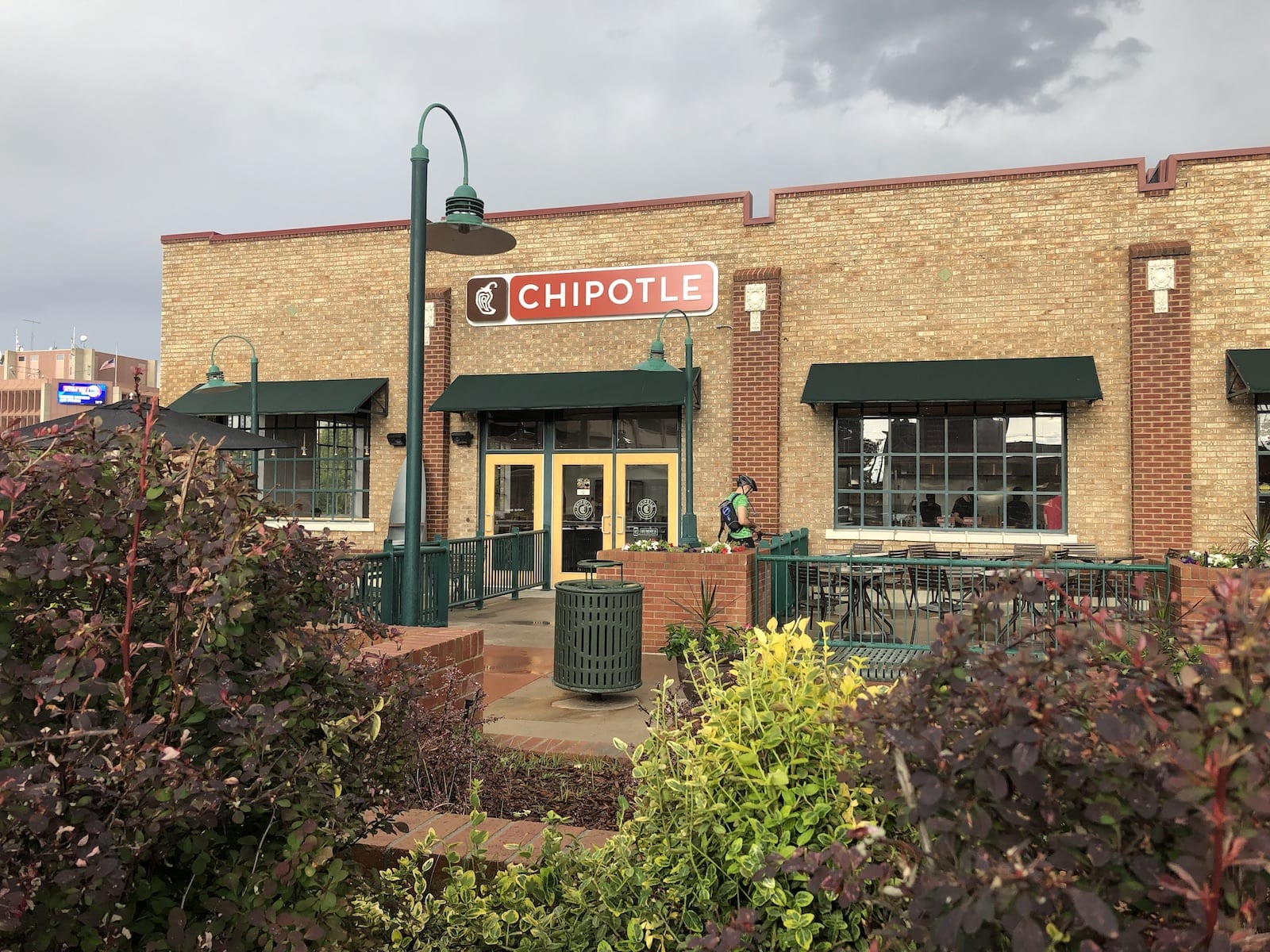
Named after the dried and smoked jalapeño pepper, Chipotle opened its first location at 1644 East Evans Avenue near the DU campus (still in operation). Now a publicly-traded company (CMG) on the NYSE (and part of the S&P 500), as of 2018 the chain counted more than 2,000 locations in the U.S., Canada, the U.K., France, and Germany.
After calling Denver home for 25 years, in June 2018 Chipotle relocated to Newport Beach, CA. Also, in early 2018 Chipotle announced that Taco Bell exec Brian Niccol would replace founder Steve Ells as CEO. While Wall Street greeted the news by launching Chipotle’s stock up 12%, CNBC’s Jim Cramer criticized the move as “against everything the (company) stands for.” Ells remains as board chair.
Despite two E. coli outbreaks in 2015 sickening diners in 14 states, Chipotle was ranked 11th in 2018 among the best fast casual U.S. chains by money.com due to their use of high-quality ingredients, which include open-range pork and organic produce.
Menu offerings at Chipotle are limited to five categories: Mission-style burritos, tacos, bowls, quesadillas, and salads. Vegetarian options are available. After expanding the menu in 2007, Ells remarked, “(If you) keep the menu focused, you can ensure (doing) them better than anybody else.” Most locations offer margaritas and beer.
6. Qdoba Mexican Eats — 1995 | Denver (HQ in San Diego, CO)
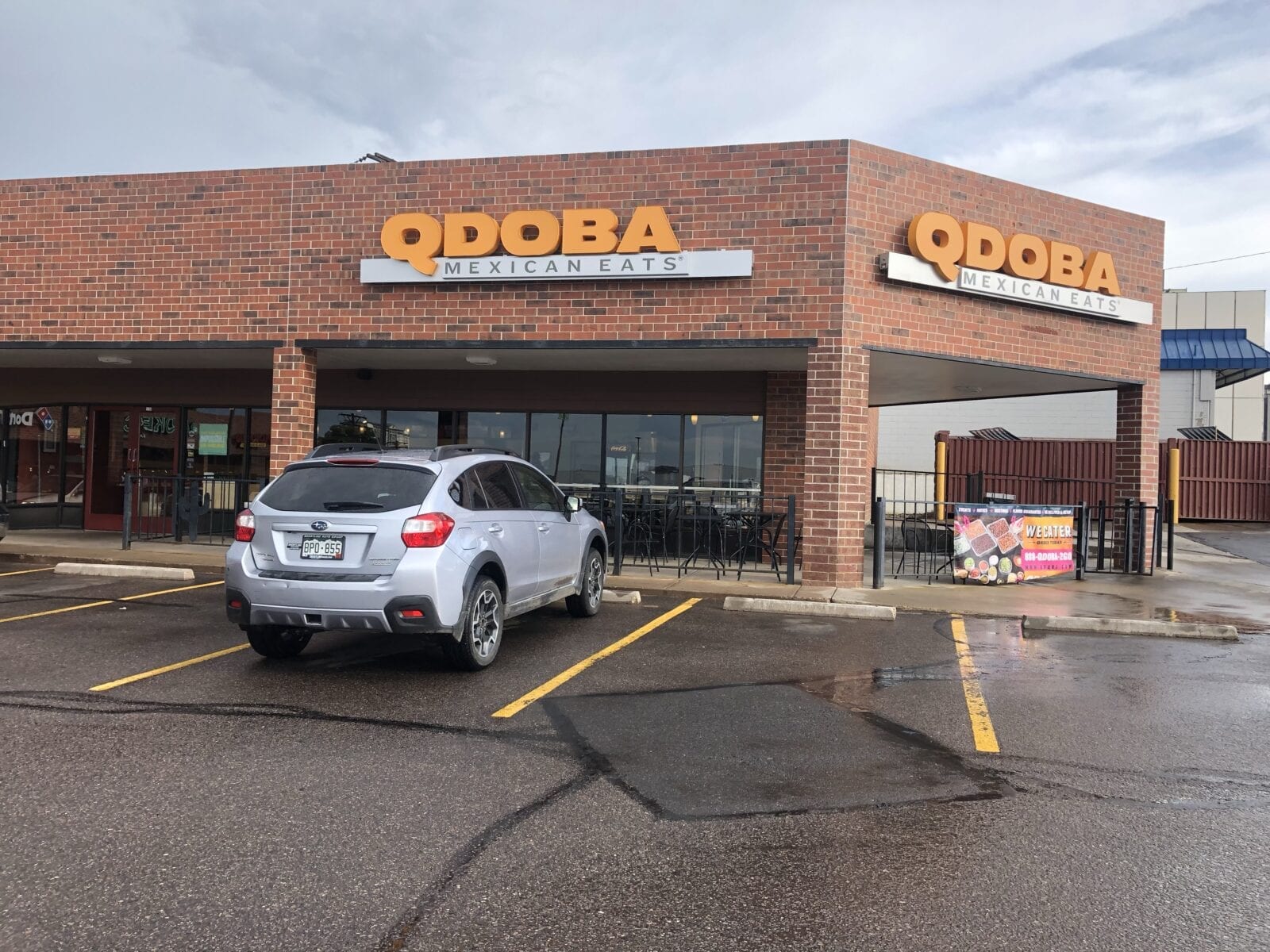
One of Chipotle’s fiercest competitors is Qdoba, which first opened in 1995 at the corner of Grant Street and Sixth Avenue in Denver. Originally known as Zuma Fresh Mexican Grill, the original location is still open for business.
Like Chipotle, Qdoba departed for California, leaving Lakewood for San Diego in 2017 after parent Jack in the Box (which acquired Qdoba in 2003) integrated the company into their corporate headquarters. In March 2018, when Qdoba was sold to Apollo Global Management, the chain had over 700 outlets in 47 states, D.C. and Canada.
, like Chipotle, Qdoba is known primarily for its Mission-style burrito but also serves quesadillas, nachos, tacos, and Mexican “gumbo.” Food is prepared in open kitchens in plain sight of patrons. Qdoba also serves breakfast; some locations remain open 24 hours during weekends.
While considered, Qdoba didn’t crack the top 15 in money.com’s best fast-casual chains in the U.S. for 2018.
7. Noodles & Company — 1995 | Denver (HQ in Broomfield)
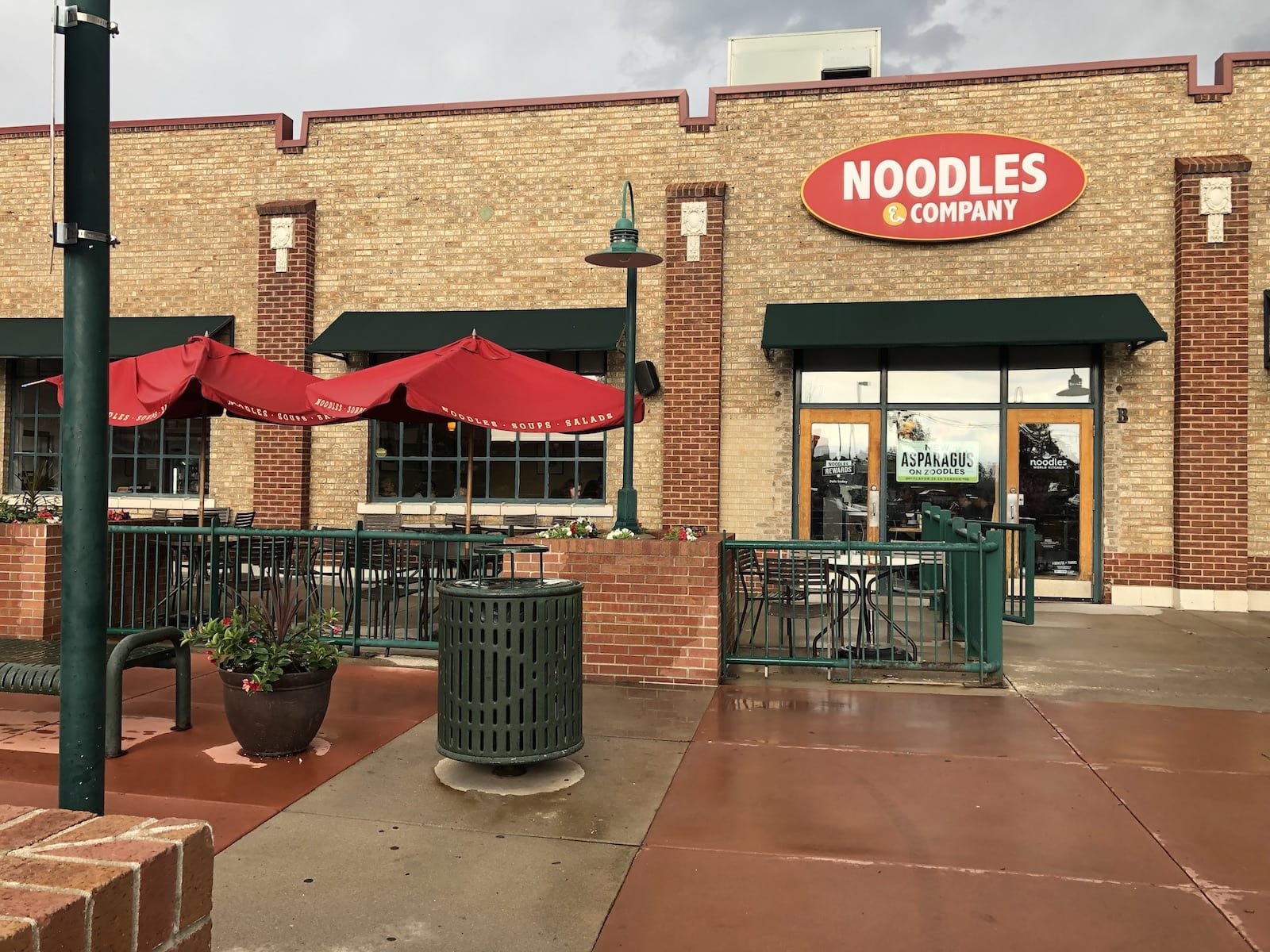
Based in Broomfield, Noodles & Company started its first restaurant in Denver’s Cherry Creek neighborhood in October 1995. Now a publicly traded company listed on the NASDAQ (NDSL), the company has hundreds of locations in more than two dozen states and D.C.
After a rocky start and numerous negative reviews, founder (and former Pepsi marketing exec) Aaron Kennedy overhauled the company’s operations. Changes included a modified menu, revamped decor (such as recycled bamboo furniture and softer lighting), and new pricing. Management also installed sauté lines to prepare dishes as they were ordered.
As the name indicates, restaurants feature both American and international noodle dishes. Other offerings include pasta, soups, and salads. Most entrees are vegetarian-based with a choice of protein toppings. Gluten-free options are also available.
While some outlets are owned by franchisees, Noodles & Company has a reputation for carefully selecting franchise partners and thus has more corporate-owned outlets than most franchising restaurants. It tied for 9th place on money.com’s list of best fast-casual chains in the U.S. for 2018.
8. Illegal Pete’s — 1995 | Boulder
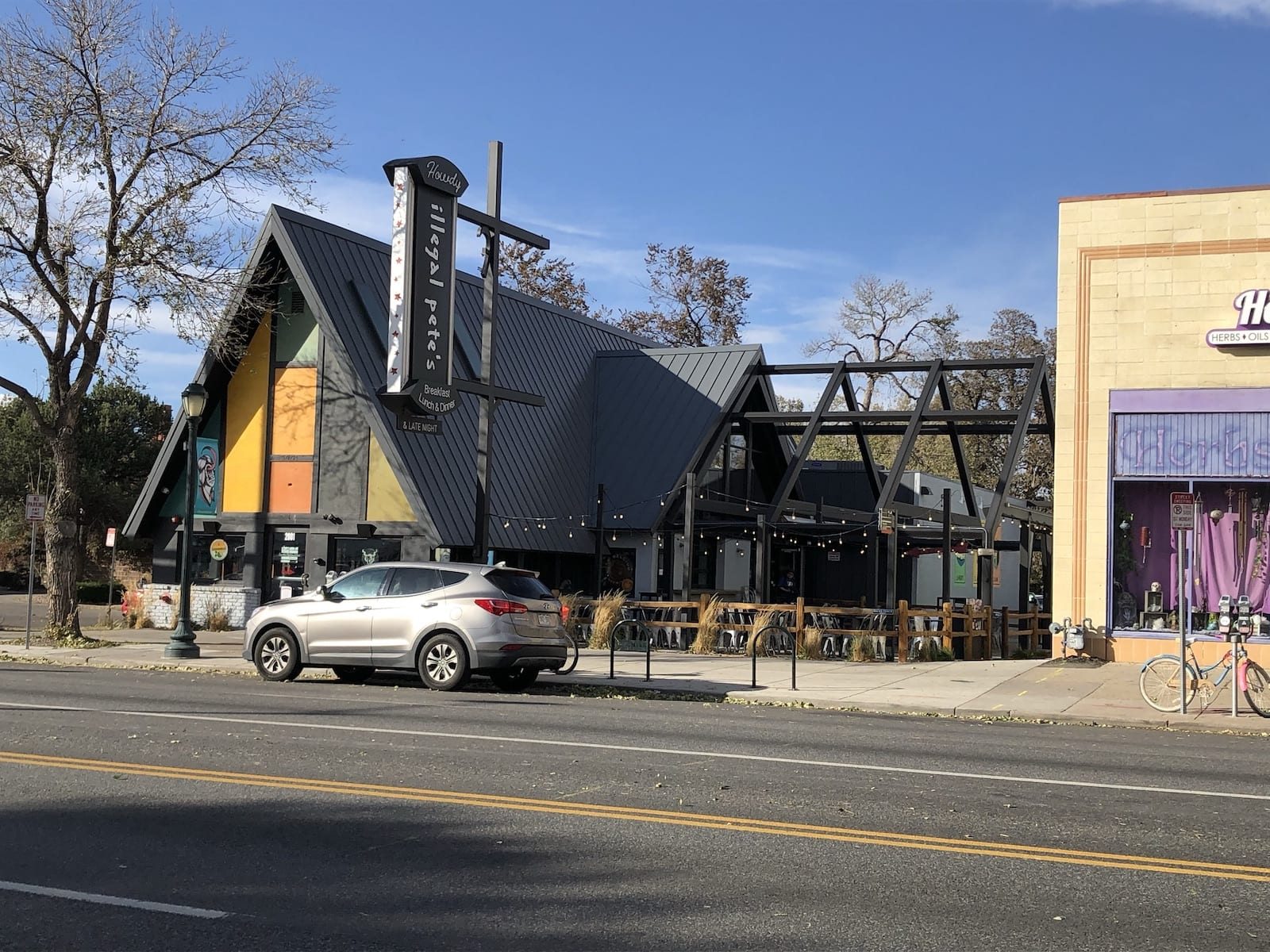
With just 11 locations across Colorado and Arizona, Illegal Pete’s ranks among the smallest chains on our list. It’s another Mission-style burrito eatery and it too began business in 1995. Founder Pete Turner opened the first location in Boulder’s The Hill (still in operation), just west of the University of Colorado campus.
With a relaxed yet nonconformist vibe, Illegal Pete’s is a favorite haunt of athletes, musicians, and college students. Rock musician Jack Johnson claims that while eating a burrito at Illegal Pete’s in The Hill, Universal Records first contacted him about a record deal. The restaurant also gives “Starving Artists” free food vouchers in advance to touring bands when they hit a town with an Illegal Pete’s outlet.
Like its competitors, Illegal Pete’s has a simple menu of burritos, tacos, nachos, and salads. Add-ons include grilled chicken or steak, pork carnitas, shredded beef, and beer-battered fish. Customers can choose sides such as pinto beans, primavera or fajita veggies, tortillas, and cheese or sour cream. (Guacamole can be substituted for dairy.) “Extras” are potatoes, green chile, queso and poblano pesto.
All ingredients used in Illegal Pete’s dishes are locally sourced; meats are antibiotic- and hormone-free. While bar options vary by location, happy hour is from 3 – 8 pm with an extensive selection of local craft beers.
9. Tokyo Joe’s — 1993 | Englewood
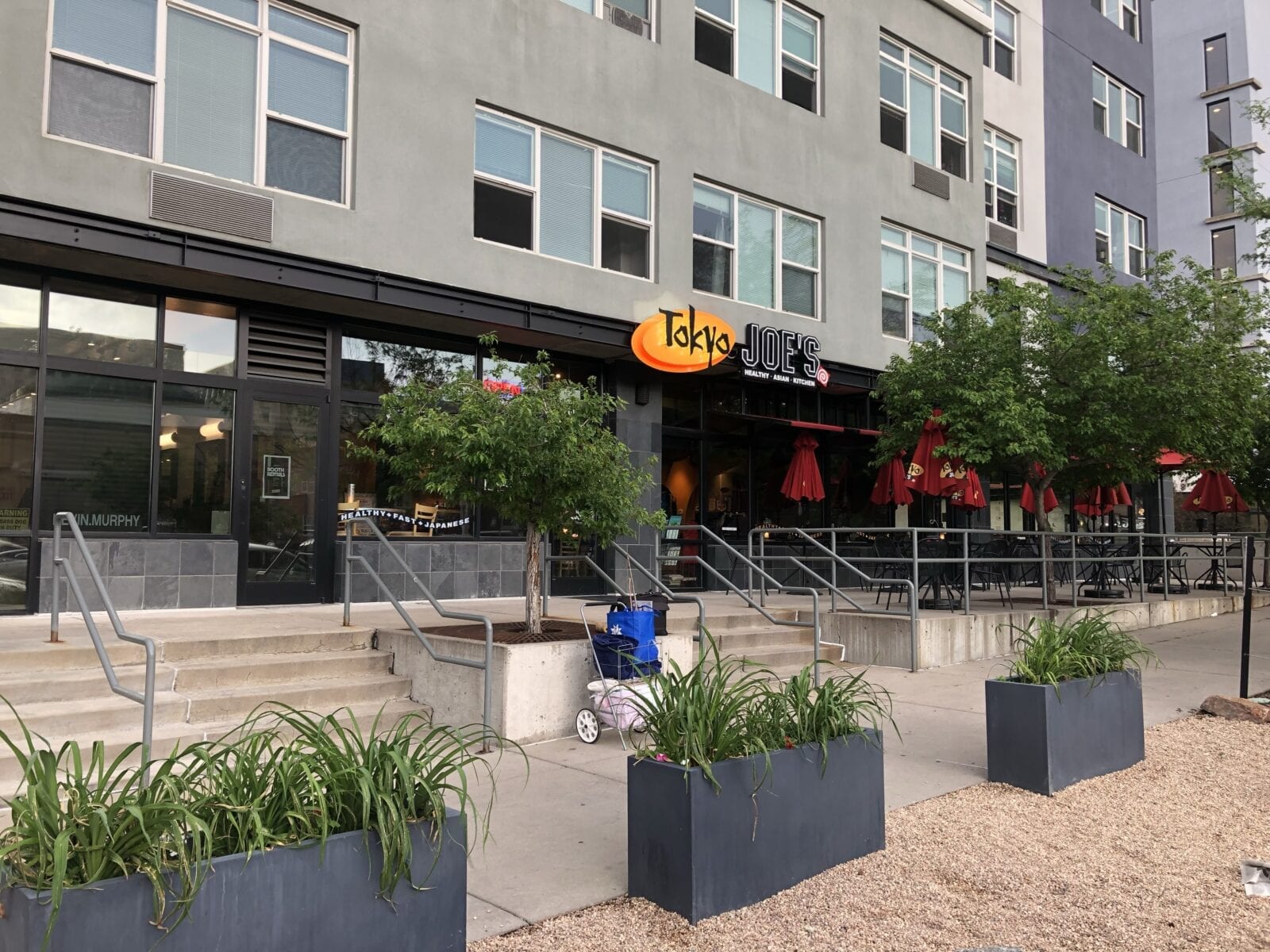
Now with more than two dozen locations in Colorado and Arizona, Tokyo Joe’s began operations in 1996 at 8727 East Dry Creek Road in Centennial. Asian-cuisine inspired, Tokyo Joe’s prepares made-to-order dishes using proprietary recipes. Their model combines both full-service and fast-casual concepts.
Started by ex-pro skier Larry Leith, Tokyo Joe’s offers white and brown rice and udon noodle bowls, salads, and made-to-order sushi rolls. Ingredients are sourced from mostly organic vegetables and “natural” meats. The menu is MSG-free with gluten-free options available. All dishes are either steamed or grilled.
To spur growth beyond Colorado, in 2013 Leith sold a majority stake of his company to private-equity firm Gridiron Capital. Greg McDonald, former Quiznos CEO, assumed chief executive duties of the chain. Leith became chief innovation officer, saying: “(McDonald is responsible for) making Tokyo Joe’s bigger. I’m (responsible for) making it better.” McDonald has since been replaced as CEO by Mark Davis.
10. Snarf’s Sandwiches — 1996 | Boulder
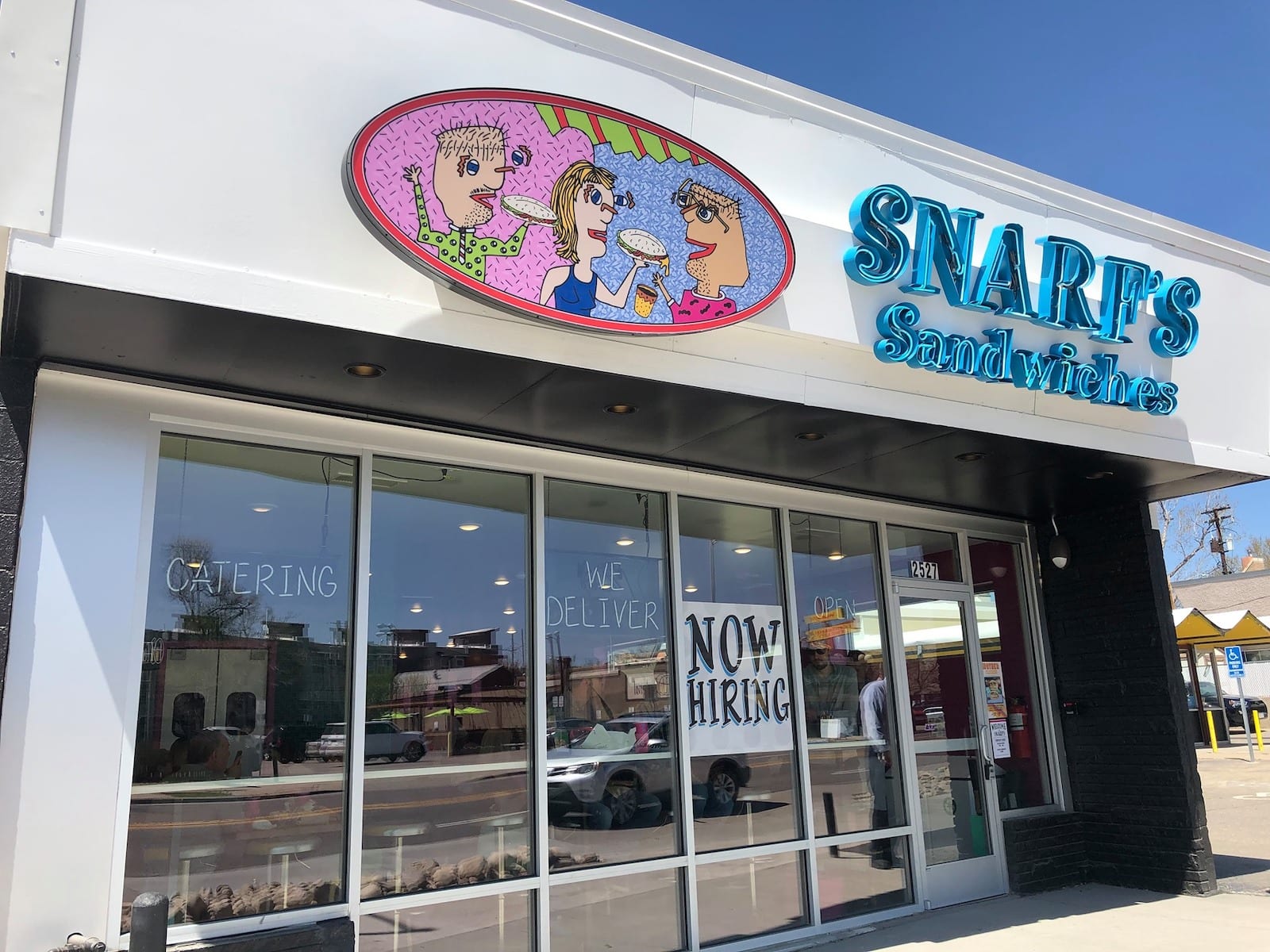
Founded in Boulder by Jimmy “Snarf” Seidel in 1996, the original location at Pearl and 21st fondly known by locals as “The Shack” closed in 2007, a victim of soaring real estate prices. Seidel moved his flagship catty-corner across Pearl Street but developers struck again, forcing him to close on March 27, 2019, to make room for new townhomes.
Residents need not fret; Seidel plans to soon reopen his flagship at 2660 Pearl, and Boulder is still home to three other Snarf’s locations. Seidel’s empire (which now includes three Snarfburger outlets) counts more than twenty Snarf’s Sandwich locations as far afield as St. Louis and Austin.
Seidel’s oven-toasted sandwiches feature his combination of giardiniera peppers, premium cheeses, hand-sliced meats, and fresh, crusty bread. Menu choices include French Dip, the Italian, NY Steak, and Prime Rib as well as salads with homemade dressings and soups. Vegetarian and gluten-free fare is available, as is catering.
Seidel strives to create a unique vibe for each location with custom décor and commissioned mosaics and artwork from Nederland native Jen Haley.
11. MAD Greens — 2004 | Centennial
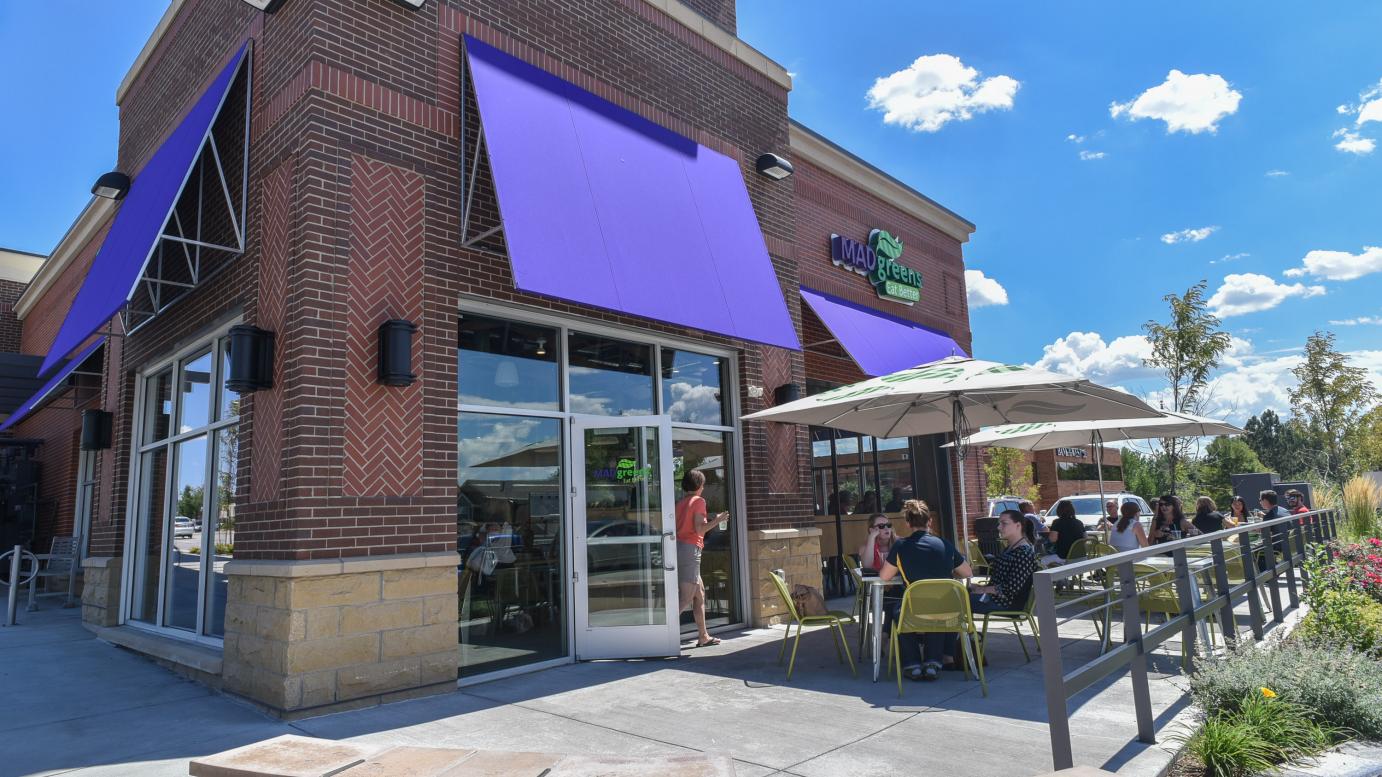
Now with dozens of locations scattered across the Front Range to the metro areas of Phoenix and Austin, MAD Greens first began tossing their salads in 2004 at the northeast corner of East County Line Road and South Yosemite Street in Centennial.
Co-founders Dan Long and Marley Hodgson sold their company in 2013 to the Coors family company AC Restaurant Group, which expanded MAD Greens to Arizona and Texas. Just within the last month (October 2019), MAD Greens merged with Dallas-based Snappy Salads to form Salad Collective, led by the MAD Greens management team of Darden Coors and John Montgomery. The two companies will continue operating under their respective brands.
MAD Greens is noted for its signature salads named after “MAD” people like Ty Cobb, Bonnie Parker, and Pancho Villa. Their menu also includes grain bowls, wraps, soups and juices. The restaurant strives to deliver healthy meals lickety-split in a clean but austere dining environment.
13. Snooze — 2006 | Denver
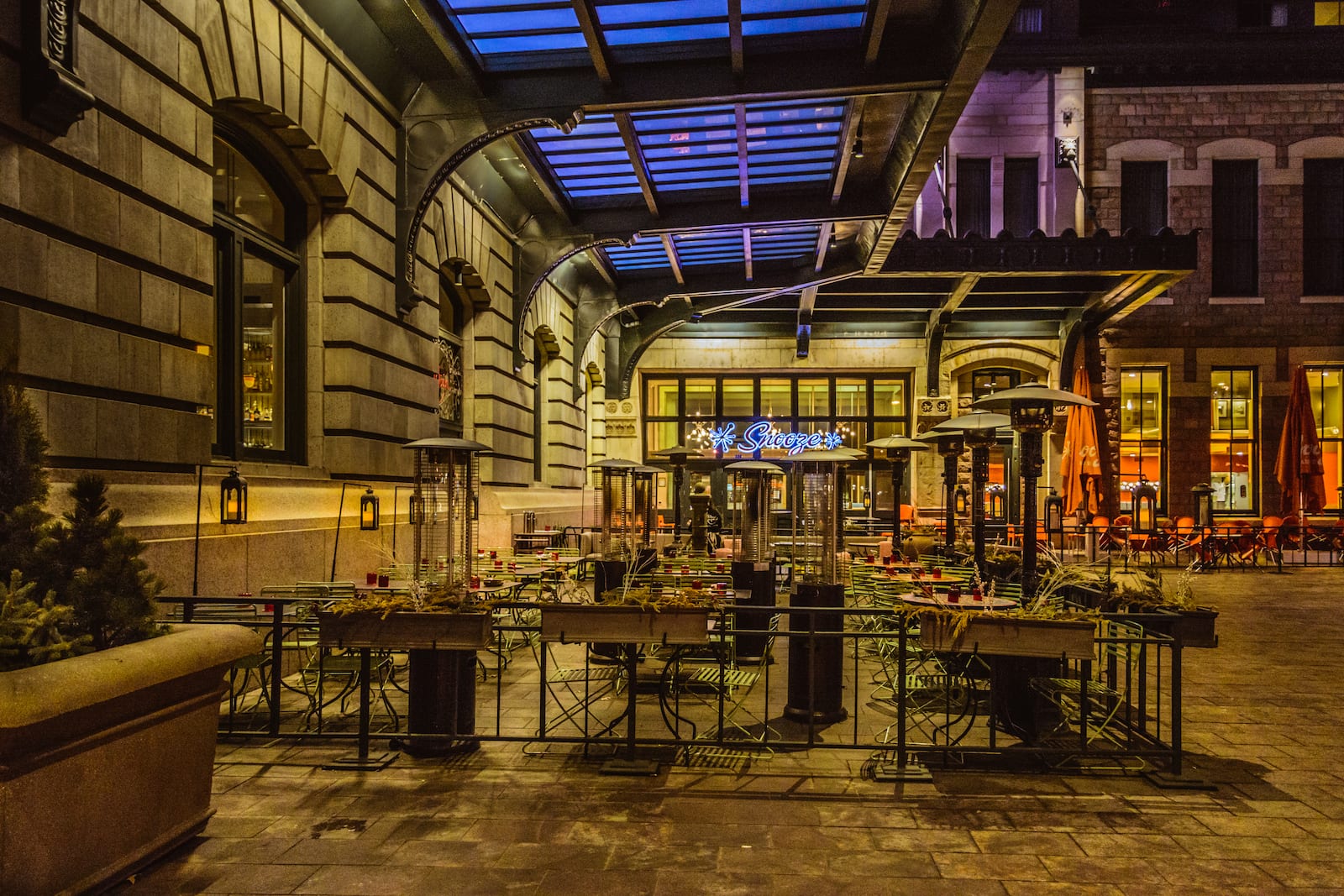
In 2006, founders Adam and Jon Schlegel began the first Snooze at 22nd and Larimer in Denver and quickly grew to eight Denver metro locations plus restaurants in Fort Collins, Colorado Springs, and Boulder. This one’s a sit-down, order with your server-style, brunch restaurant, and not a “fast-casual” diner, but we included it anyway because it’s local, tasty, and growing.
Calling itself an “A.M. Eatery,” Snooze markets an eco-friendly image by using sustainable (and trendy) ingredients such as pure maple syrup from Vermont, handcrafted Snooze Bloody Mary mix bottled in Denver, Guatemalan coffee, and “responsibly raised” pork products from an Iowa farm.
In 2016, the Stripes Group gained a majority interest in the restaurant chain, propelling the restaurant’s expansion into distant locales like Texas, California, Arizona, and North Carolina. As of now, Snooze’s has dozens of outlets. They serve breakfast, lunch, and brunch items; most locations close by 2:30 pm.
At Snoozes, diners can partake in potent adult libations with their meals. The extensive drink menu includes a variety of mimosas, “morning” margaritas, coffee cocktails, and local and seasonal craft beers. Their signature entrees include a pineapple upside-down pancake and Benedict egg dishes, one with smashed avocado.
13. Smashburger — 2007 | Glendale
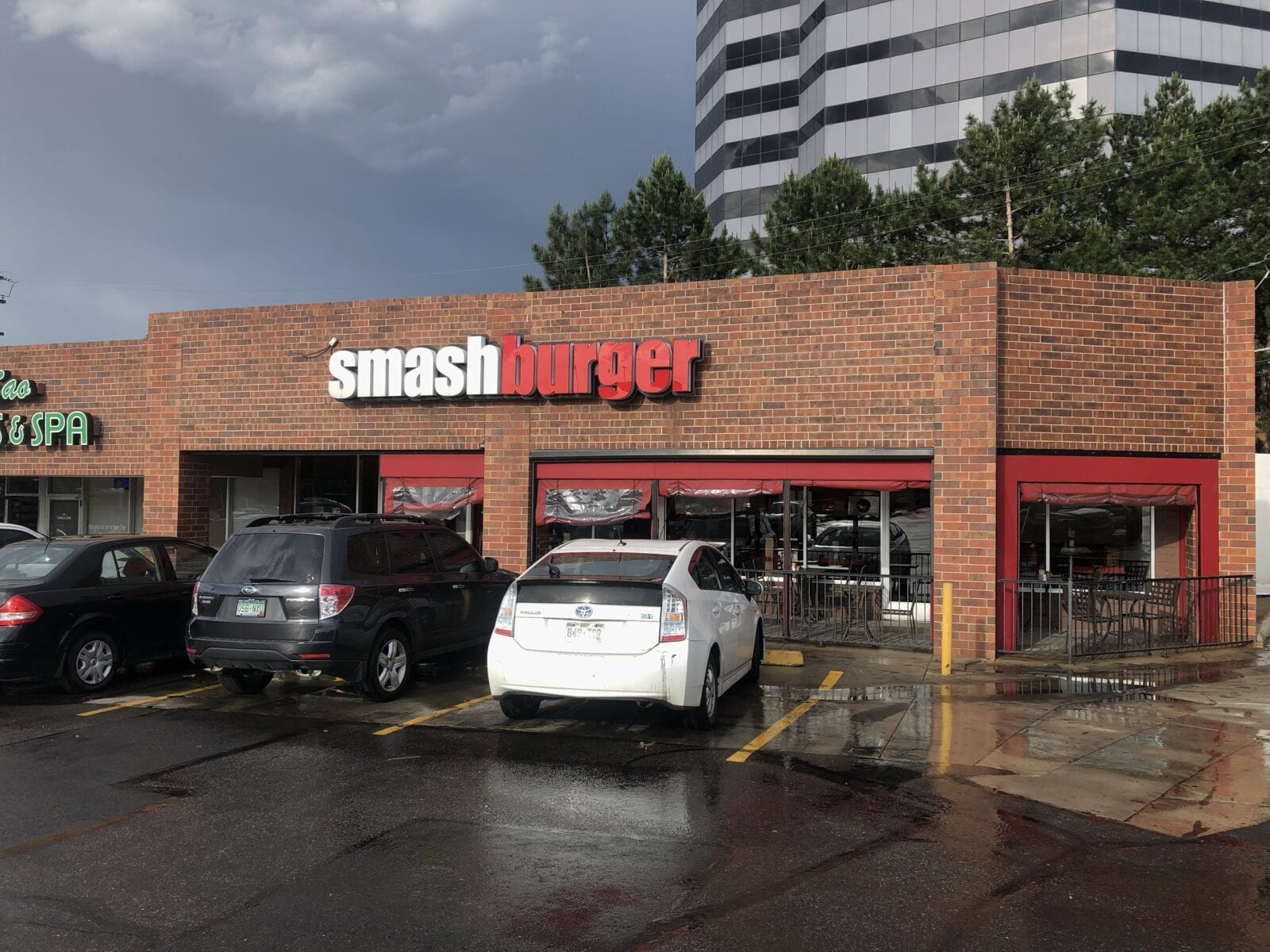
In 2007 with $15 million in capitalization, veteran fast food execs Tom Ryan (Pizza Hut, McDonald’s) and Rich Schaden (Quiznos) founded Cervantes Capital, the corporate overlord of Smashburger. With backing from private equity firm Consumer Capital Partners, they opened the first Smashburger, located in a Glendale strip mall at 1120 South Colorado Boulevard.
Smashburger is more akin to a QSR than most brands listed here but Ryan explains that Smashburger was meant for the 20-30% of QSR patrons who want something better than the industry norm. Using Angus beef, Smashburger truly “smashes” their burgers and cooks them on a flattop grill at a higher temperature than competitors. Another difference— Smashburgers serves beer to their customers.
Smashburger was a success from the start as outlets soon appeared nationwide and internationally. Money.com ranked Smashburger as the 12-best fast-casual chain in the U.S. for 2018.
14. Garbanzo Mediterranean Fresh — 2008 | Denver
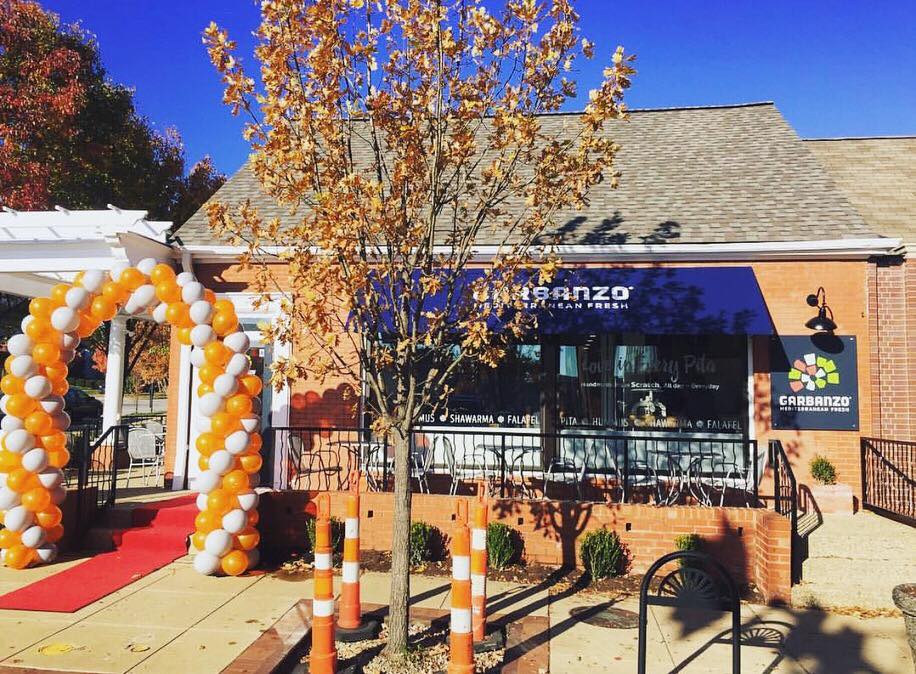
Featuring an open kitchen and sleek dining decor, Garbanzo Mediterranean Fresh was founded in 2008 and first debuted in 2009. Since its inception, the Denver-based chain has grown to more than two dozen locations with franchises in multiple states, some on college campuses. Larry Sidoti, Garbanzo’s chief development officer, foresees much greater growth soon. Within five years, corporate management looks to have 300 locations.
One food critic compares the restaurant’s concept to that of Panera Bread. Garbanzo features WiFi and classical music, creating a calm and relaxing dining atmosphere. The restaurant’s menu focuses on healthy dining, accommodating low-carb, gluten-free, vegan vegetarian, and paleo diets.
Garbanzo makes their pitas fresh with on-site baking ovens. Mediterranean staples include hummus and tabbouleh. falafel, grilled steak, chicken, rice, and baba ganoush as well as Greek gyros. Many dishes have Lebanese spice blends to impart an authentic Middle East flavor and the chain uses the Israeli founder’s family recipes.
When new management assumed control of the chain in 2016, CEO James Park reined back expansion while they revamped menu items and recipes. They also introduced a new décor with a Middle East-inspired look. The changes worked; in 2017, industry magazine First Casual cited Garbanzo as the fourth-best “Mover and Shaker” and QSR Magazine included it on their “40 Under 40” as a chain with under 40 locations poised to hit the big leagues of franchised restaurants.
As you can tell more than a dozen top fast-casual restaurants got their start in Colorado. While some have since moved their headquarters out of state, such as Qdoba and Chipotle to California, all of them were founded and grown with passion in Colorado.


 12 Easy to Difficult Hikes in Breckenridge
12 Easy to Difficult Hikes in Breckenridge